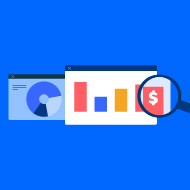This article is part of the Crunchbase Community Contributor Series. The author is an expert in their field and a Crunchbase user. We are honored to feature and promote their contribution on the Crunchbase blog.
Please note that the author is not employed by Crunchbase and the opinions expressed in this article do not necessarily reflect official views or opinions of Crunchbase, Inc.
There are numerous ways that cybercrime can have a negative impact on businesses and individuals actively tracking market trends. Conducting market research means acquiring an array of sensitive consumer data and trade secrets. A breach of this valuable information can have catastrophic repercussions for any company, from a decrease in stock value to a decline in customer trust.
Read Crunchbase’s latest report: The Rise Of Global Cybersecurity Venture Funding
From the cost of extortion to loss of revenue from service interruptions, a data breach could potentially — and often does — cost companies millions to recover. Even worse than that, brands take a huge hit to their reputations when their security fails.
As companies continue to move more of their market research data to cloud-based servers, there has been an increase in cybercrime as hackers become better at targeting cloud security measures. In order to safely track industry trends there are a few key strategies that are paramount to continued brand growth.
Cybercrime techniques
Ransomware is an increasingly popular way for hackers to make big money off of small businesses and big corporations alike.
The use of adware and mobile malware is also increasing as more people are working remotely and using personal devices to conduct business. Cryptojacking, which is difficult to detect, is on the rise and wreaking havoc on companies globally. It’s due to threats such as these that 30 percent of U.S. companies have reported a loss of intellectual property in the last decade alone.
In the current environment, it’s not a matter of if an attempt to steal data will occur, it is a matter of when. Creating a cybersecurity strategy using emerging technologies can ensure your business’ long-term protection against data breaches and other security threats.
There are many ways cybercriminals can gain access to sensitive market data from the cloud, computers and mobile apps. Old-fashioned techniques like phishing and DDOS attacks are still common ways that even the most savvy market researchers and IT professionals are tricked into handing over access to their insider information.
Security strategies
There is more at stake than just money; data is the most valuable commodity. A case study by Imperva found that 78 percent of organizations surveyed had fallen victim to at least one attack. If hackers can gain access to your company’s new designs, ideas and marketing strategies, your brand may never recover. Here are five security strategies to keep in mind when conducting market research and storing data on servers and devices:
Always encrypt important data
Encryption is an invaluable tool for businesses to use in securing sensitive data. Many privacy laws require the use of encryption because it provides privacy from the inside out. Only authorized individuals have access to encrypted files and devices, preventing accidental leaks and breaches of data.
No matter if they’re in the office or working from home, all employees should be using a VPN on all of the devices they use for work and never access company data on a personal device. A VPN ensures that internet activity remains private by encrypting the connection data and hiding the IP address. The encryption protocols used by VPNs keep even geographic information a secret. Many cyberattacks start with accessing someone’s IP address, but using a VPN makes that information inaccessible.
Enforce digital hygiene policies
Because of how rapidly digital transformation took off after the onset of the pandemic, there will be a learning curve for most employees when it comes to cybersecurity. Cloud computing with several remote access points allows for plenty of opportunities for hackers to slip in, and with people often reusing passwords for personal and work applications, the number of opportunities for data to be breached goes up exponentially. Using a password manager is very effective at securing business applications because it requires that passwords be changed incrementally.
As well as making basic cybersecurity training and policies mandatory for employees, it is vital that there is a protocol for when a cyberattack does take place. Containing the attack is your best bet at keeping as much of your company’s data safe as possible during the event, and without a plan panic is likely to cause hazardous mistakes.
Invest in a high-quality antivirus software
One of the most important security defenses is a high-quality antivirus software that can help to detect all kinds of malicious attacks, including sneaky malware attacks. Although most cloud providers are good about keeping your data safe, it is possible for a data breach to occur if malware is accidentally downloaded onto a company device from the cloud. There are many options available when it comes to antivirus software and it’s a wise investment especially for remote workers’ devices.
Do your due diligence
When it comes to choosing a provider for any of your security needs or business applications, always do your due diligence before you trust anyone else with your most valuable business data. There are likely to already be privacy expectations your company is expected to comply with, especially in fintech. However, these regulating bodies can leave some with vulnerabilities.
According to London-based investor Alex Williams of Hosting Data, it’s vitally important for any U.K.-based trading platforms to come under the authority of the Financial Conduct Authority (FCA). He also advises to double-check that your business practices are in compliance, and to ensure your security needs are met regardless of what the law requires.
“The Financial Conduct Authority independently administers oversight of financial markets and various brokerages in the U.K.,” said Williams. “We should add that, although they are well regulated, the FCA is known for being lenient in important ways, allowing the market to remain liquid and competitive.”
Have a data loss prevention program in place
Security management technology is very useful and cost-effective. A good DLP program consists of software and protocols that are put in place in the event that a cyberattack occurs. These preventative software measures are usually built to comply with industry-specific regulatory bodies, but can be customized to meet a company’s specific needs.
A DLP program tracks where data is stored and viewed so breaches can be pinpointed and weak spots can be properly addressed. Without a DLP in place, your customers’ information and important business data are susceptible to being stolen and exploited. You might also consider using a security program manager that can help create continuity across all of your security platforms, both AI and human-based.
Conclusion
In order to make the most of your market research, it is imperative that you protect your investments, data and customers’ privacy. One wrong click by a remote worker could have a catastrophic impact on share price and brand reputation.
Identify your vulnerabilities so you can choose the level of protection needed for your business. With careful planning and companywide security policies in place you can prevent the loss of critical market research data.
Kiara Taylor is an expert on the integration of finance and technology. She writes about the impact of both micro and macro trends on global finance.





